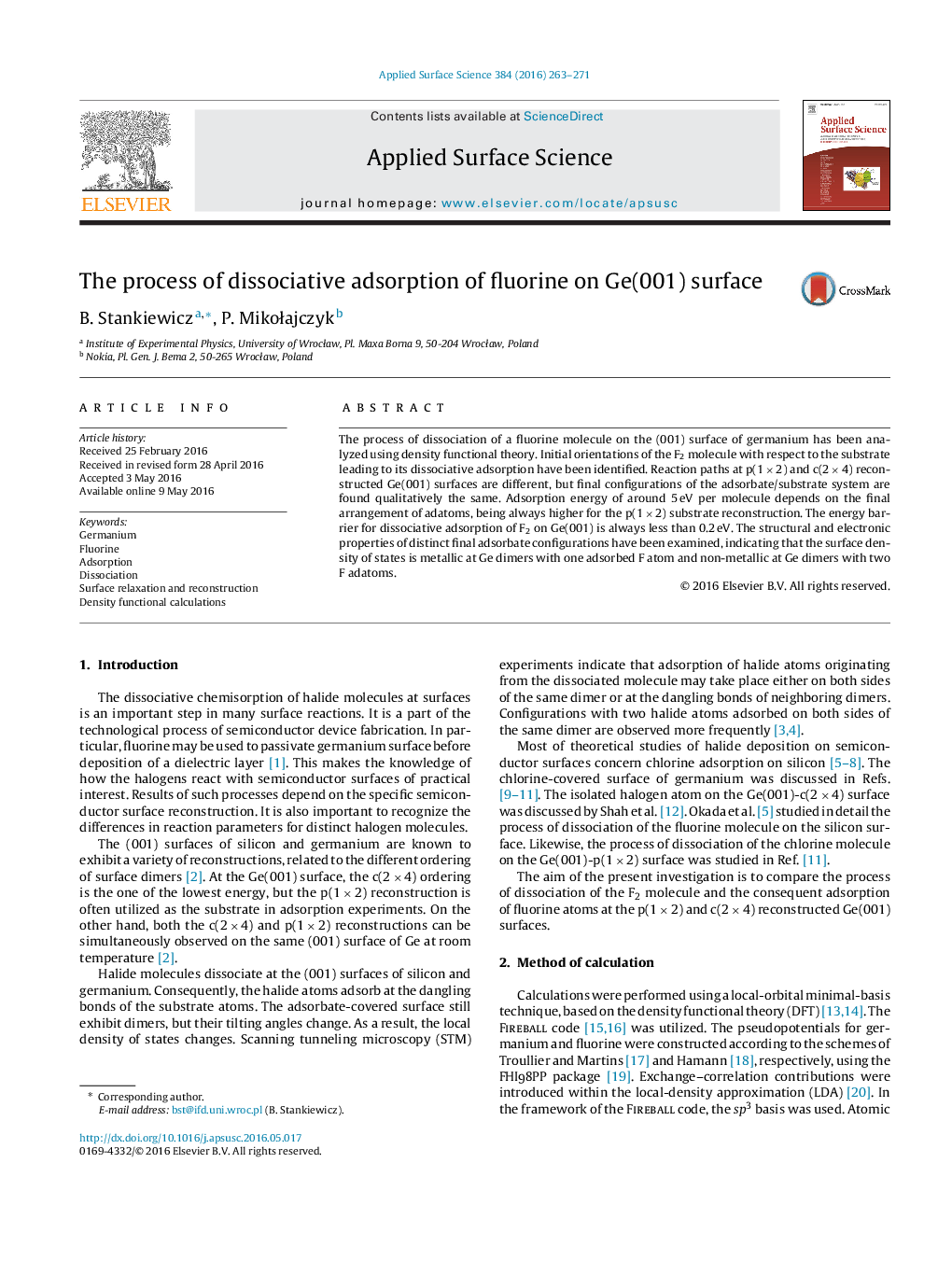| Article ID | Journal | Published Year | Pages | File Type |
|---|---|---|---|---|
| 5354135 | Applied Surface Science | 2016 | 9 Pages |
Abstract
The process of dissociation of a fluorine molecule on the (001) surface of germanium has been analyzed using density functional theory. Initial orientations of the F2 molecule with respect to the substrate leading to its dissociative adsorption have been identified. Reaction paths at p(1Â ÃÂ 2) and c(2Â ÃÂ 4) reconstructed Ge(001) surfaces are different, but final configurations of the adsorbate/substrate system are found qualitatively the same. Adsorption energy of around 5Â eV per molecule depends on the final arrangement of adatoms, being always higher for the p(1Â ÃÂ 2) substrate reconstruction. The energy barrier for dissociative adsorption of F2 on Ge(001) is always less than 0.2Â eV. The structural and electronic properties of distinct final adsorbate configurations have been examined, indicating that the surface density of states is metallic at Ge dimers with one adsorbed F atom and non-metallic at Ge dimers with two F adatoms.
Keywords
Related Topics
Physical Sciences and Engineering
Chemistry
Physical and Theoretical Chemistry
Authors
B. Stankiewicz, P. MikoÅajczyk,
